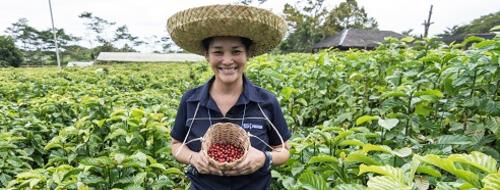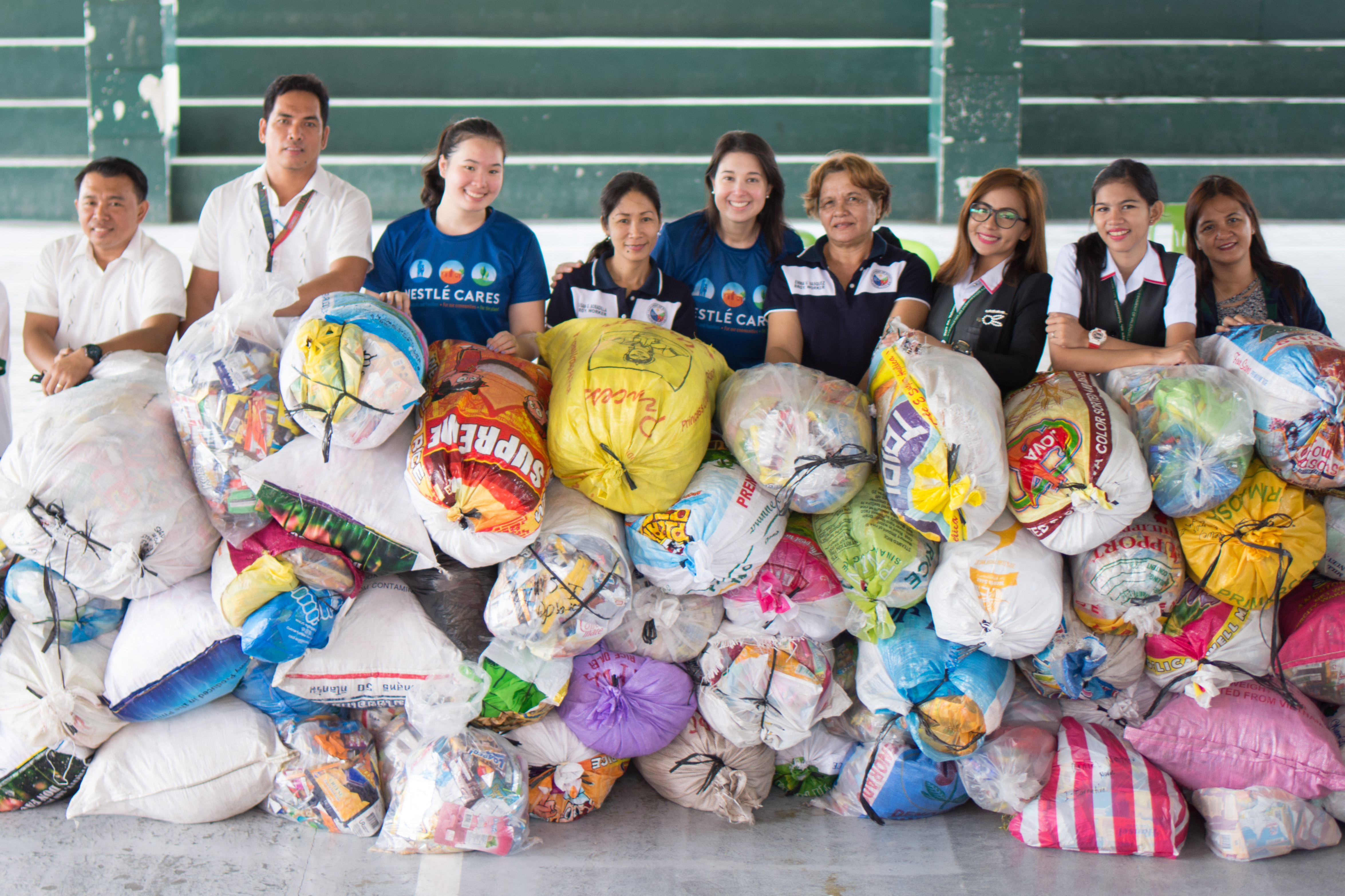Article by Edison Joseph Gonzales
Published in Malaya Business Insight on 3 September 2019
THE world’s largest food and beverage company, which has a strong presence in the Philippines, envisions that none of end users’ waste is dumped in landfills or ends up as litter.
“Tackling the problem of plastic waste in the environment and arriving at sustainable solutions are of paramount importance to Nestlé,” said Nestlé Philippines Chairman and CEO Kais Marzouki. “We will achieve our vision through three focus areas: developing the packaging of the future; helping shape a waste-free future; and driving new behaviors and understanding,” he added.
“At Nestlé Philippines, we are accelerating our efforts to find solutions to the plastics problem. It is imperative that while we look for innovative packaging solutions, we also take immediate action to avoid leakage into waterways and oceans, and find ways to recycle our packaging. We continue to explore multiple plastic collection schemes and drive the right mindset toward proper solid waste management. We look forward to applying our learnings in our future programs,” Marzouki said.
Nestlé Philippines had announced in April of last year its commitment to make 100 percent of its packaging recyclable or reusable by 2025.
Pioneering alternative materials
The company has progressively reduced the material used for its packaging, rolling out alternative materials and solutions while ensuring product quality and safety. For instance, the amount of plastic used per pack of Bear Brand and Nescafé has been reduced by optimizing pack thickness and size.
Nestlé has replaced stretch film with glue application for holding shipping cases together during transport, and this initiative has reduced the use of plastic.
The company has set timelines to remove hard-to-recycle or litter-prone plastics and has eliminated five out of six materials that are not recyclable or are hard to recycle, such as polyvinyl chloride (PVC), polyvinyliden chloride (PVDC), and polystyrene (PS).
Nestlé’s quest for alternative materials and innovative solutions for litter-prone items, such as plastic straws, is in full swing. Besides shifting to lighter-colored plastics, it also intends to replace laminated cartons for easier recycling.
Initiatives are underway to redesign plastics for recycling. Through its Nestlé Institute of Packaging Sciences and with guidance from its research centers across the globe, Nestlé is exploring plastics for packaging that are designed to be recycled, and at the same time looking for sustainable alternatives.
Shaping a waste-free future
While the search for innovative packaging solutions is ongoing, Nestlé believes that immediate action must be taken to stop leakage into waterways and oceans, and to find ways to recycle packaging. The company continues to explore multiple plastic collection schemes.
Nestlé has entered into a long-term collaboration with Green Antz Builders, an innovative social enterprise, to partner with local government units (LGUs) for the collection of waste sachets that are then used in the manufacture of valuable construction materials such as eco-bricks and eco-pavers.
In addition, Nestlé has programs with the LGUs of Cabuyao City in Laguna, Baliwag in Bulacan, Cagayan de Oro City in Misamis Oriental, and Cauayan City in Isabela to collect and recycle sachets, turning them into eco-bricks.
The company recently formed a citywide partnership with Valenzuela City for the incentivized collection of waste plastic sachets and used beverage cartons from its 33 barangays. The sachets are then co-processed in the cement kilns of Republic Cement and used beverage cartons recycled through a paper mill.
Various Nestlé brands like Chuckie and other ready-to-drink (RTD) products have started working with retail partners to collect used beverage cartons and convert these into recycled paper.
Nestlé provides healthy and nutritious on-the-go beverages with its new RTD Baon Subscription powered by goodfood.ph. When a new batch of orders arrives, consumers are encouraged to turn over their used beverage cartons which are then taken to a partner recycling facility.
Bear Brand Fortified Powdered Milk Drink, the Department of Education (DepEd), and the Philippine Business for Social Progress have teamed up for the Tibayanihan Upcycling Project. Used packs are converted into Tibay Chairs which are donated to schools in need. The initial sachet collection covered close to 1,300 schools nationwide.
Collection also happens through events. The most recent leg of Milo Marathon in Manila was a zero waste event in which sampling cups and runners’ drinking cups were collected and co-processed.
Nestlé believes in collective action and cooperation to find solutions in countries where recycling infrastructure is limited. It has initiated partnerships with fast-moving consumer goods companies, industry associations, government, non-government organizations, academe and recyclers through the Philippine Alliance for Recycling and Material Sustainability (PARMS).
PARMS has launched a plastic waste recovery program in seven pilot schools and their communities, in cooperation with Parañaque City’s Community Environment and Natural Resources Office and DepEd. It has also established a plastics recycling facility which houses extrusion and eco-brick equipment that will recycle post-consumer laminates.
Driving new behavior
Effectively addressing the plastic waste challenge requires behavior change from all stakeholders in society. In 2018, Nestlé Philippines launched an internal sachet collection initiative in its offices and factories, which aims to create awareness and promote participation to encourage segregation at source.
Single-use plastics, meanwhile, are no longer used at Nestlé Philippines’ facilities. Early this year, its offices began to use metal cutlery and glasses, and employees are encouraged not to accept plastic forks and spoons with food deliveries.
Nestlé recognizes the need to extend responsible solid waste management beyond the confines of its operations. In this regard, the company provides training in solid waste management for Valenzuela City’s barangay officials, teachers, and volunteers.
Communication and education efforts are conducted in other communities where Green Antz eco-brick hubs operate.
In conclusion, Marzouki said that shaping a waste-free future is a long and challenging journey requiring much innovation, determination, learning, and effort. “As stakeholders, all of us need to make the journey together, to collaborate with optimism, in order to achieve successes along the way.”



